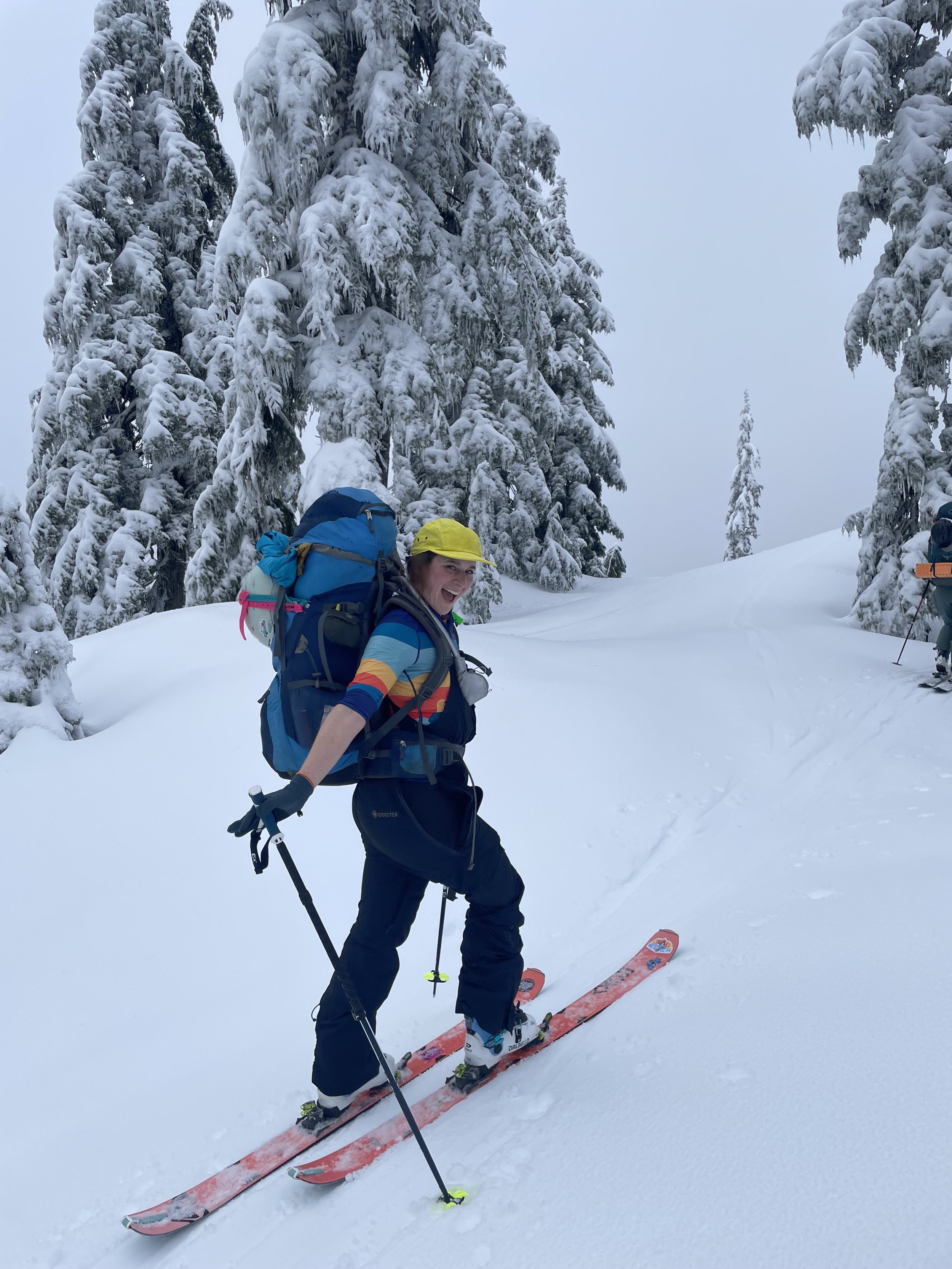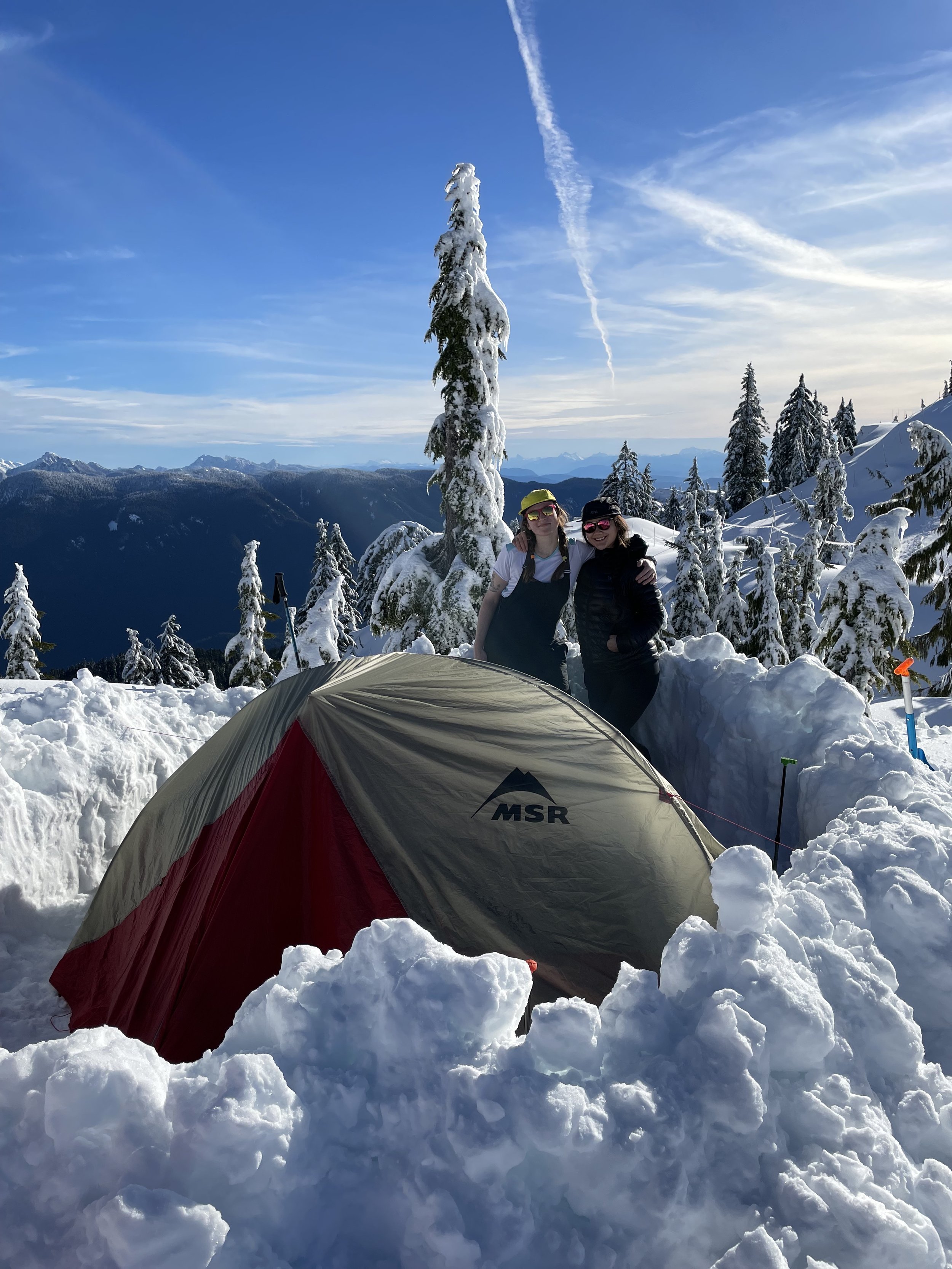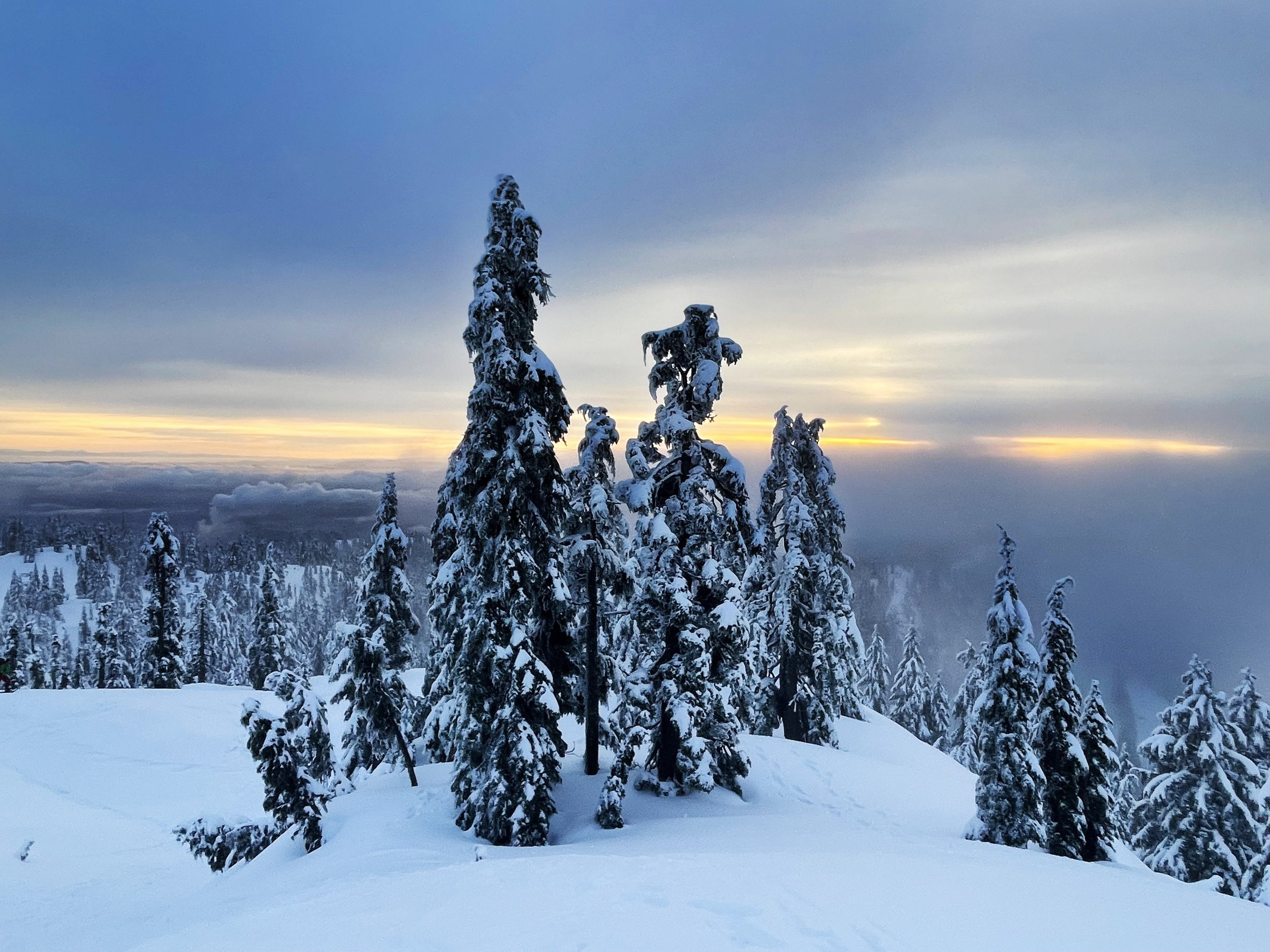So if you haven't yet - you definitely need to read Part 1 first! Find that here.
Part 2
Unlearning toxic standards in snowsports and becoming a mentor anyway
Let’s talk about why so many of us hold ourselves to unreasonably high expectations when it comes to backcountry athleticism; what we can do to combat the inner critic; and, hopefully, realize our full mentoring potential.
In North America, backcountry sports culture has been historically dominated by white, hypermasculine narratives — a symptom of the ongoing legacy of colonialism and patriarchy. Take the “Fathers of National Parks”, people like John Muir and Theodore Roosevelt, who idealized the practice of backcountry travel to nature’s “God-like” monuments and perpetuated violent, racist policies against Black and Indigenous Peoples whose land they sought to occupy under the guise of conservation.
This mindset of viewing nature as a space to dominate instead of respect shows up in backcountry sports culture to this day (think: “peak-bagging”). So much of hardcore mountaineer culture is about who can send it to the deepest, farthest, fastest, steepest pitch in the backcountry. The bigger and faster the better, right?
The thing is, a “go big or go home” mentality in the backcountry is not only super toxic, it puts people in danger. It prioritizes the objective of the day over the safety of people. It’s the same mentality that allowed a BCMC trip leader to ditch me in the dark on the Rubble Creek trail.
So when I find myself comparing my abilities to these macho standards, I stop. Do I really want to perpetuate this culture in the name of being considered a “good” outdoor athlete? Who am I as a friend, leader and potential rescue companion if I prioritize sick ski lines over the greater comfort and safety of my teammates?
The backcountry is not a space to individualize or quantify — in fact, this is when we can get in the most trouble. Instead, I’d much rather slow down and appreciate the landscape, check in and communicate with my teammates, practice gratitude and reciprocity for the land I’m traveling on. The most fun I've had in the backcountry have been on trips where everyone felt safe, empowered, and heard. As my AST-1 instructor said, “I’m just happy to eat cheese in a beautiful place.”
When I applied to be a backcountry ski mentor, I knew I wasn’t applying as an expert skier or expansive backcountry knowledge holder. I’m not a professional mountaineer, I don’t know how to rescue people from crevasses and I’ve never skied a couloir — in fact, I’m an intermediate skier altogether.
But I’m not trying to be a gnarly, big mountain athlete sponsored by Red Bull. Instead, I’m keeping it humble and sticking to what I know — which, for a gal who didn’t grow up skiing and works a full-time office job — is pretty solid.
I know how to create a comprehensive backcountry trip plan; I can communicate effectively with my ski partners; I have my 80-hour wilderness first responder certification; and I know how to read and interpret Avalanche Canada’s data and citizen-submitted reports. And, because I’m a huge nerd for mountain knowledge and safety, I’m always on the lookout for educational opportunities to further my knowledge. (Shout out to Avalanche Canada’s fantastic seasonal webinar series.) From coffee shops to the mountains, engaging in knowledge-sharing and learning opportunities as a mentor to my mentee is a win.
For anything my mentee wants to learn that isn’t in my repertoire, I’ll reach out to more experienced mentors in the program for their guidance. Earlier this season, a group of Mountain Mentors pairs went winter camping at Mt. Seymour’s Brockton Point in what was one of the most empowering trips I’ve ever been on. It was both mine and my mentee’s first time winter camping and you can check out the TikTok of our adventure here.
Ultimately, there is no final point to being a “perfect” outdoor athlete. We’re all learning as we go. So if you’re thinking about applying to be a mentor, now’s the time to do it. Have faith in your skills, and be the bridge for someone who doesn’t currently have access to the backcountry community. Stop comparing your backcountry capabilities to the standards of crusty old white dudes. Understand that safety and learning are legitimate backcountry objectives — not just steeps and gnarly ski lines. You probably know way more than you give yourself credit for anyway, and your future mentee will thank you. In the passing down of knowledge, my mentor Sarah took the leap. I took the leap. Now it’s your turn.
Let’s go eat cheese in a pretty place!
About the author: Simone Williamson is a communications professional with the national environmental law charity Ecojustice. Outside of work you can find her swing dancing, enjoying a beer in the park with friends and discussing all things politics and the ethereal plane. A big nerd for mountains and backcountry skiing, Simone is ecstatic to be a part of the Mountain Mentors program for the second season in a row. She currently resides in East Van within the unceded, ancestral and traditional territories of the Musqueam, Squamish and Tsleil-Waututh Nations. Keep up with Simone on Instagram at @simone.willy.



